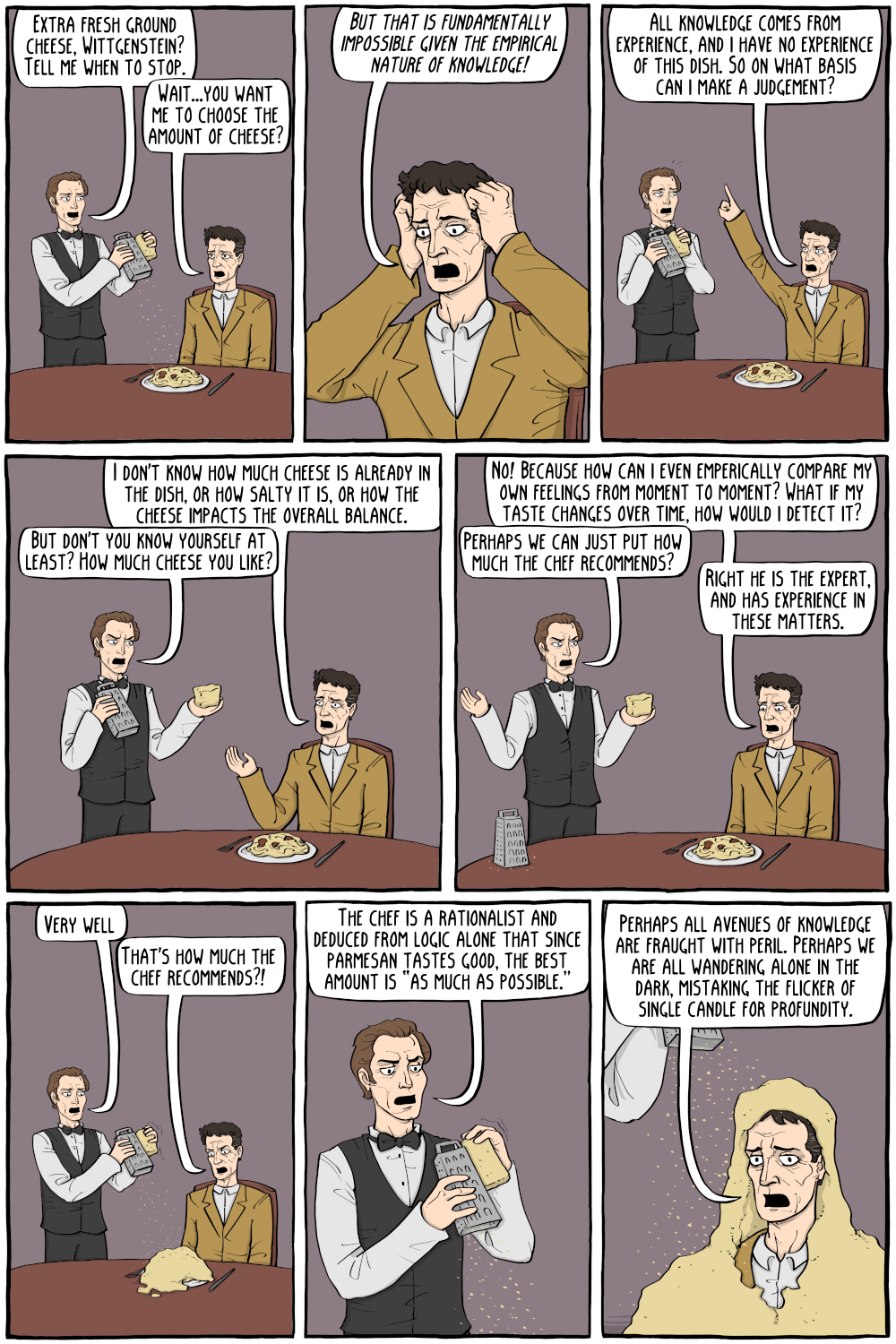this post was submitted on 04 Dec 2023
787 points (97.8% liked)
Comic Strips
12434 readers
3377 users here now
Comic Strips is a community for those who love comic stories.
The rules are simple:
- The post can be a single image, an image gallery, or a link to a specific comic hosted on another site (the author's website, for instance).
- The comic must be a complete story.
- If it is an external link, it must be to a specific story, not to the root of the site.
- You may post comics from others or your own.
- If you are posting a comic of your own, a maximum of one per week is allowed (I know, your comics are great, but this rule helps avoid spam).
- The comic can be in any language, but if it's not in English, OP must include an English translation in the post's 'body' field (note: you don't need to select a specific language when posting a comic).
- Politeness.
- Adult content is not allowed. This community aims to be fun for people of all ages.
Web of links
- !linuxmemes@lemmy.world: "I use Arch btw"
- !memes@lemmy.world: memes (you don't say!)
founded 1 year ago
MODERATORS
you are viewing a single comment's thread
view the rest of the comments
view the rest of the comments

The objectively real world may be separate from and indifferent to sense perception, but sense perception isn't indifferent to the objective world. Sense perceptions are caused by an interaction of our sense organs and the world. Surely from repeated patterns of sense perception we can draw some correct inferences about the external world?
How can we be sure that those inferences are correct? Any appeal to empirical evidence would be circular reasoning.
"correct" is a heavy word there. Would reproducible and predictable suffice?
And don't call me Shirley.
Surely you can't be serious